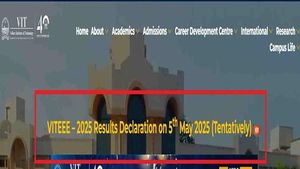In a significant show of unity, over 200 university presidents and chancellors have banded together to denounce what they describe as the Trump administration's "unprecedented government overreach and political interference" in higher education. This collective statement, organized by the American Association of Colleges and Universities (AAC&U), was released on April 22, 2025, and marks the largest unified response from academic leaders against the administration's tactics to date.
The statement, titled "A Call for Constructive Engagement," articulates a strong message regarding the potential consequences of compromising the freedoms integral to American higher education. The signatories express concerns that the administration's actions threaten not only academic integrity but also broader societal issues such as economic stability, social mobility, and advancements in scientific and medical fields.
In their letter, the university leaders assert, "We speak with one voice against the unprecedented government overreach and political interference now endangering American higher education." They emphasize their openness to constructive reform but firmly oppose what they term "undue government intrusion" in the lives of students, faculty, and staff across campuses.
Among the criticisms leveled against the administration is the use of deportation threats as a means of retaliation against students and faculty who hold diverse viewpoints. The statement underscores a commitment to academic and intellectual freedom, asserting that institutions must remain sanctuaries for open inquiry and the exchange of ideas without fear of censorship or retribution.
Notably, the statement has garnered support from leaders of prestigious institutions, including Harvard, Brown, Columbia, Northwestern, and Princeton Universities. These schools have faced direct consequences from the administration's policies, such as funding freezes and visa revocations affecting international students. Harvard's president, Alan M. Garber, highlighted the importance of this collective voice, stating, "The price of abridging the defining freedoms of American higher education will be paid by our students and our society."
In a stark contrast, White House spokesperson Harrison Fields dismissed the letter, asserting that the administration is committed to "equality and fairness" and will not be influenced by what he termed "worthless letters by overpaid blowhards." This response underscores the contentious atmosphere surrounding higher education policy under the Trump administration.
The backdrop to this collective statement can be traced to a meeting of college leaders at a recent AAC&U conference, where there was a palpable sense of urgency among attendees. Lynn C. Pasquerella, president of the AAC&U, noted that there was a "widespread consensus" that a line had been crossed in terms of governmental actions against educational institutions. Many leaders expressed concerns about the risks associated with speaking out, fearing potential backlash from donors or the administration itself.
Despite these fears, the collective nature of this statement has provided a platform for leaders who may have previously felt isolated in their concerns. Alison Byerly, president of Carleton College, emphasized the importance of unity, stating, "This statement offers those leaders an avenue to do so, and provides strength in numbers for those not wanting to stand too alone on the cliff." Byerly herself felt a duty to speak out, recognizing the responsibility that comes with her position.
Grant Cornwell, president of Rollins College, echoed similar sentiments, stating, "If a president can’t defend and explain the core principles of teaching and research, then the whole system is broken and under siege." His willingness to sign the statement reflects a growing recognition among academic leaders that silence in the face of such challenges is no longer an option.
In recent weeks, the landscape of higher education response has shifted dramatically. Harvard University took a bold step by suing the Trump administration for freezing billions of dollars in research grants, marking the first direct legal challenge against such funding cuts. This legal action has set a precedent that may encourage other institutions to follow suit.
As the statement gained traction, the number of signatories swelled from an initial 190 to 238 by the end of the day it was released. This surge in support highlights the urgency felt by many leaders who recognize the potential long-term ramifications of the administration's policies on higher education.
Moreover, the AAC&U has indicated that this statement is intended to be a "living document," allowing for additional endorsements and support from academic leaders as they navigate the evolving landscape of higher education policy. Pasquerella noted that while the initial call for signatures closed on April 21, the ongoing nature of this initiative will enable leaders to join in solidarity as circumstances develop.
The ongoing dialogue among college leaders also includes discussions about potential collaborations with industry, K-12 educators, and local communities to bolster support for higher education amidst these challenges. The collective statement serves as a rallying cry for educational institutions to unite against perceived threats and advocate for policies that uphold their mission of fostering open inquiry and diverse viewpoints.
As the situation unfolds, the academic community remains vigilant, aware that the stakes are high for the future of American higher education. The collective response from these leaders not only signals a shift in tone but also underscores a commitment to protecting the freedoms that have long defined the landscape of higher learning in the United States.
In conclusion, the statement from over 200 university presidents and chancellors represents a pivotal moment in the ongoing dialogue about the role of government in higher education. As they call for constructive engagement and resist undue interference, these leaders are not only defending their institutions but also advocating for the values that underpin the very foundation of American democracy.





